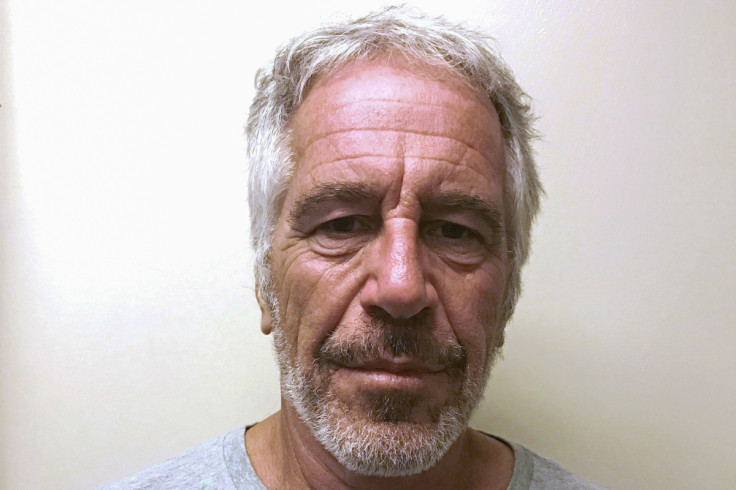The New Epstein? Wall Street Tycoon Howard Rubin Faces Explosive Sex Trafficking Allegations

Howard Rubin, a 70-year-old former Wall Street tycoon once celebrated for his financial acumen, now faces federal charges that prosecutors say expose a trafficking ring stretching over a decade.
Arrested in Brooklyn on 26 September 2025, Rubin and a former assistant stand accused of recruiting women for paid sexual encounters—some of which allegedly escalated into violent abuse inside a Midtown penthouse 'dungeon'.
Rubin has pleaded not guilty, but the indictment has already sparked comparisons with the late Jeffrey Epstein's case.
The indictment and the US Attorney's Office detail alleged use of non-disclosure agreements, travel arrangements, payments, and sustained funding of the enterprise; prosecutors say Rubin and his co-defendant spent at least £746,861 (approx. $1,000,000) on the operation.
The Federal Case: Charges, Evidence, and Court Filings
Federal prosecutors in the Eastern District of New York unsealed a 10-count indictment on 26 September 2025, charging Rubin and Jennifer Powers with sex trafficking, interstate transportation for prostitution, and a related bank-fraud count.
The indictment alleges the scheme operated from about 2009 through 2019 and included recruitment, travel bookings, and payments to women who were sometimes encouraged to use drugs or alcohol.
Court filings outline specific places and practices prosecutors say were central to the alleged operation: luxury hotels early on, and later a two-bedroom Midtown penthouse with one bedroom converted into a soundproof, red-painted room outfitted with bondage equipment and a device alleged to have been used to shock women.
The indictment names multiple 'Jane Does' and describes NDAs and structured payments; it also alleges a June 2020 bank statement misrepresentation connected to financing the co-defendant's home.
The government has moved for detention of Rubin, arguing flight risk and the severity of the alleged scheme; if convicted on the TVPA-related counts, Rubin faces a mandatory minimum of 15 years and up to life imprisonment. The indictment and detention memoranda are public court documents that outline the factual claims prosecutors intend to prove.
Parallels With Jeffrey Epstein — Similarities and Key Differences
There are clear points of factual overlap between the Rubin indictment and the public record of Jeffrey Epstein's prosecution. Both men were wealthy financiers accused by prosecutors of using their resources to recruit women for paid sexual encounters, both faced civil litigation before federal criminal actions, and both have alleged use of private properties and legal instruments to deter disclosure by victims.
Rubin's indictment explicitly references a Manhattan penthouse 'dungeon' and NDAs; Epstein's cases likewise involved private residences and confidentiality measures, and his 2019 indictment in the Southern District of New York charged sex-trafficking of minors.

Epstein was charged with abuse of minors and longstanding sex-trafficking conspiracies culminating in 2019 prosecutions, and Epstein's 2008 non-prosecution agreement (NPA) and its handling have been the subject of Department of Justice review; those are well-documented steps in Epstein's legal history.
By contrast, Rubin's indictment — as unsealed in September 2025 — alleges trafficking and violent sexual abuse of adult women (identified as Jane Does in the charging papers) and proceeds from a 2017 civil action that led to a jury finding against him in 2022. The presence or absence of minor victims is a material factual difference between the two cases in the public record.
Civil Verdict, Testimony, and What Is On Record
Rubin had faced civil litigation dating back to 2017. During a jury trial in the Eastern District of New York in March–April 2022, the jury found Rubin liable under the Trafficking Victims Protection Act. It awarded compensation and punitive damages to several plaintiffs. District court orders and memoranda summarise the trial testimony and jury findings.
The court's written opinions quote in-court testimony and describe factual findings that later informed prosecutors' work. Those federal civil records are primary documents that show how some allegations against Rubin were litigated before criminal charges were filed.
Beyond the headlines lie survivors whose testimony underpinned civil awards and now informs criminal prosecution. The government has invited other potential victims to come forward and has established a contact point for information.
Outlook: A High-Profile Trial Ahead
Rubin's indictment is now part of the public record, with pre-trial motions expected to draw scrutiny from media and advocates.
While comparisons with Epstein are inevitable, the government stresses the unique contours of this case: adult victims, documented civil findings, and alleged violence in a Manhattan setting. For survivors, the trial offers another chance for their testimony to be heard in open court.
© Copyright IBTimes 2025. All rights reserved.





















